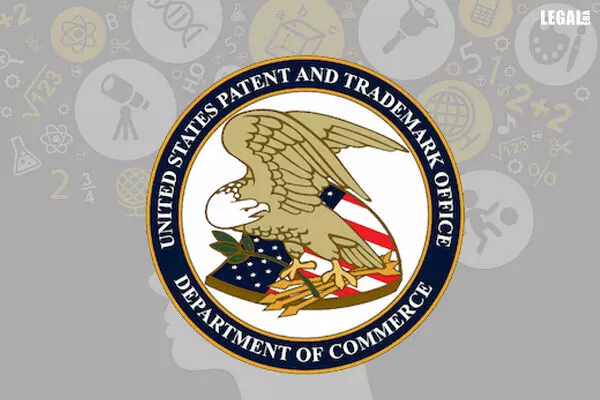- Home
- News
- Articles+
- Aerospace
- Artificial Intelligence
- Agriculture
- Alternate Dispute Resolution
- Arbitration & Mediation
- Banking and Finance
- Bankruptcy
- Book Review
- Bribery & Corruption
- Commercial Litigation
- Competition Law
- Conference Reports
- Consumer Products
- Contract
- Corporate Governance
- Corporate Law
- Covid-19
- Cryptocurrency
- Cybersecurity
- Data Protection
- Defence
- Digital Economy
- E-commerce
- Employment Law
- Energy and Natural Resources
- Entertainment and Sports Law
- Environmental Law
- Environmental, Social, and Governance
- Foreign Direct Investment
- Food and Beverage
- Gaming
- Health Care
- IBC Diaries
- In Focus
- Inclusion & Diversity
- Insurance Law
- Intellectual Property
- International Law
- IP & Tech Era
- Know the Law
- Labour Laws
- Law & Policy and Regulation
- Litigation
- Litigation Funding
- Manufacturing
- Mergers & Acquisitions
- NFTs
- Privacy
- Private Equity
- Project Finance
- Real Estate
- Risk and Compliance
- Student Corner
- Take On Board
- Tax
- Technology Media and Telecom
- Tributes
- Viewpoint
- Zoom In
- Law Firms
- In-House
- Rankings
- E-Magazine
- Legal Era TV
- Events
- Middle East
- Africa
- News
- Articles
- Aerospace
- Artificial Intelligence
- Agriculture
- Alternate Dispute Resolution
- Arbitration & Mediation
- Banking and Finance
- Bankruptcy
- Book Review
- Bribery & Corruption
- Commercial Litigation
- Competition Law
- Conference Reports
- Consumer Products
- Contract
- Corporate Governance
- Corporate Law
- Covid-19
- Cryptocurrency
- Cybersecurity
- Data Protection
- Defence
- Digital Economy
- E-commerce
- Employment Law
- Energy and Natural Resources
- Entertainment and Sports Law
- Environmental Law
- Environmental, Social, and Governance
- Foreign Direct Investment
- Food and Beverage
- Gaming
- Health Care
- IBC Diaries
- In Focus
- Inclusion & Diversity
- Insurance Law
- Intellectual Property
- International Law
- IP & Tech Era
- Know the Law
- Labour Laws
- Law & Policy and Regulation
- Litigation
- Litigation Funding
- Manufacturing
- Mergers & Acquisitions
- NFTs
- Privacy
- Private Equity
- Project Finance
- Real Estate
- Risk and Compliance
- Student Corner
- Take On Board
- Tax
- Technology Media and Telecom
- Tributes
- Viewpoint
- Zoom In
- Law Firms
- In-House
- Rankings
- E-Magazine
- Legal Era TV
- Events
- Middle East
- Africa

USPTO proposes rules for implementing Trademark Modernization Act

USPTO proposes rules for implementing Trademark Modernization Act Implementing the Trademark Modernization Act (TMA), United States Patent and Trademark Office (USPTO) issued a notice of proposed rule-making. The TMA was passed by Congress in December 2020. Open to the public for comment on the proposed rule-making, these proposed rules create new non-use cancellation procedures, shorten...
To Read the Full Story, Subscribe to Legal Era News
Access Exclusive Legal Era Stories, Editorial Insights, and Expert Opinion.
Already a subscriber? Sign in Now
USPTO proposes rules for implementing Trademark Modernization Act
Implementing the Trademark Modernization Act (TMA), United States Patent and Trademark Office (USPTO) issued a notice of proposed rule-making. The TMA was passed by Congress in December 2020. Open to the public for comment on the proposed rule-making, these proposed rules create new non-use cancellation procedures, shorten office action response deadlines and expand on the USPTO's Letter of Protest procedures. Some of the changes are summarized below:
Ex Parte Expungement and Re-examination: Addressing fraudulent filing and registration of marks not in commerce, such proceedings can be initiated by any third parties to challenge the registrant regarding the non-usage of the mark.
Estoppel and Co-Pending proceedings: The proposed rules barred the co-pending proceedings which involve the same registration and goods and/or services for the new expungement and reexamination proceedings.
Attorney representation: The rules propose automatic termination of an attorney's representation when an application registers, ownership changes, or an application is abandoned. The recognition of the attorney will be till the time owner revokes the appointment or the attorney withdraw itself.
Response Period: The TMA makes the deadline flexible for the response of Office action from 60 days to six months. The rule proposes to amend the office action response periods to three months for applications under sections 1 and 44. Upon payment of $125 fees, the applicant can request a single three-month extension. For 66(a) applications, the deadline remains the same to six months.
Nonuse Ground for Cancellation: The rules propose the new ground for cancellation based upon the nonuse of TM that is created by TMA which the third party can seek. This ground is available after the first three years.
Letter of Protest: The determination of Letter of Protest by the USPTO's director is final and non-reviewable. This determination will not prejudice any party's right.
Suspension and Court order concerning registration: The rule proposes the applicability of suspension rules for application and TTAB proceedings including it for ex parte re-examination and expungement proceedings. Moreover, for any such court order which require canceling or affecting trademark registration, USPTO seeks to require submission of certified copies of court orders.


